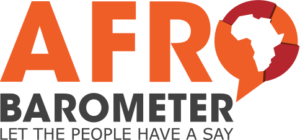
CodaStory
Africa is grappling with democratic backsliding, according to recent studies. In 1985 there were only three democracies while there were 42 authoritarian regimes on the continent. By 2015, the number of democracies had reached 22. However, democratic backsliding saw the number shrink to 18 democracies compared with 19 authoritarian regimes and 13 hybrid ones in 2020, The Mail & Guardian’s Craig Moffat writes.
Term limits in particular remain crucial for the promotion of democracy and good governance as they are important safeguard measures to prevent tyranny and to guarantee the peaceful political transition from one elected president to the next, he adds. A recent Afrobarometer survey* found that across 34 countries, an average of 76% favour limiting their presidents to two terms, including a majority (54%) who “strongly” support this rule.
 Russia’s growing influence across the sub-continent is also contributing to democratic backsliding.
Russia’s growing influence across the sub-continent is also contributing to democratic backsliding.
Samuel Ramani, a fellow at think-tank RUSI and author of a forthcoming book on Russia in Africa, says Moscow has focused on a strip of countries running from Mali to Sudan. “They think they can build a ‘coup belt’ to give them influence and crowd out the west,” he tells The FT:
In what Ramani characterises as the culmination of a long game dating back to the Soviet era — but one that accelerated since Putin regained the Russian presidency in 2012 — he says Moscow has employed a “shadowy army of power-projection tools” to carry out “hybrid interventions”.
 The Central African Republic is a virtual “client state” of Moscow, reveals its preferred modus operandi, FT analysts David Pilling and Andres Schipani write in Russia in Africa: how Moscow built a new sphere of influence on the cheap:
The Central African Republic is a virtual “client state” of Moscow, reveals its preferred modus operandi, FT analysts David Pilling and Andres Schipani write in Russia in Africa: how Moscow built a new sphere of influence on the cheap:
One of the poorest countries in the world, CAR’s state is so fragile that rebel groups control parts of the country. Its president, Faustin Archange Touadéra, owes his survival to Wagner mercenaries who helped put down an attempt to overthrow him ahead of elections in 2020. ….. Russia is also shaping the political landscape. Diplomats report a heavy Wagner presence, in fatigues and civilian clothes, at government ministries.
Danièle Darlan, former head of the Constitutional Court, was removed in late October after blocking an attempt to amend the constitution so that Touadéra could run for a third term. In March, she received a visit from two Russian diplomats urging her to support the amendment, western diplomats recall. Now guarded by UN soldiers because of death threats against her, she said she had little doubt that Moscow was behind her dismissal as the Russians are making Touadéra “more dictatorial every day.”
“The Russians are everywhere, in institutions, ministries, civil society, media — everywhere,” one intelligence officer in Bangui says.
 Russia has attempted to derail democratic transitions in each African country where it has gained influence—and has sights on expanding its influence, adds Dr. Joseph Siegle, the Director of Research at the Africa Center for Strategic Studies. Russian disinformation campaigns have asymmetrically enhanced its sovereignty-sapping efforts—puffing up perceptions of popularity in Moscow’s favored regimes while denigrating and attempting to delegitimize democracy.
Russia has attempted to derail democratic transitions in each African country where it has gained influence—and has sights on expanding its influence, adds Dr. Joseph Siegle, the Director of Research at the Africa Center for Strategic Studies. Russian disinformation campaigns have asymmetrically enhanced its sovereignty-sapping efforts—puffing up perceptions of popularity in Moscow’s favored regimes while denigrating and attempting to delegitimize democracy.
China and some Arab Gulf States are also attempting to undermine African sovereignty, he writes for the Wilson Center’s Africa Year in Review:
China’s approach is highly institutionalized with investments in Africa’s media houses and journalism training to control the information space. In 2022, China also opened its first overseas political party leadership school in Tanzania—to strengthen its party-dominated governance model on the continent. Gulf States have been active in North Africa and the Greater Horn, backing proxy politicians in the effort to establish greater influence and prop up autocratic political leaders—stymieing citizens’ democratic aspirations.
- * Two high-profile editorial boards also cited AB findings: the Washington Post (on democratic aspirations) and the Christian Science Monitor (on Gambian youth perceptions of economic opportunity).
- The Wilson Center’s Africa: Year in Review 2022 features AB CEO Joseph Asunka’s analysis of “The military in politics: Does democracy have a future in Africa?”
- Nigerian presidential candidate Peter Obi cited AB findings on elections in a speech at Chatham House.
An @afrobarometer survey found that across 34 countries, an average of 76% favor limiting their presidents to two terms, including a majority (54%) who “strongly” support this rule, @CraigMoffat9 writes for @mailandguardian. https://t.co/s4IWZbL3ln
— Democracy Digest (@demdigest) February 7, 2023







